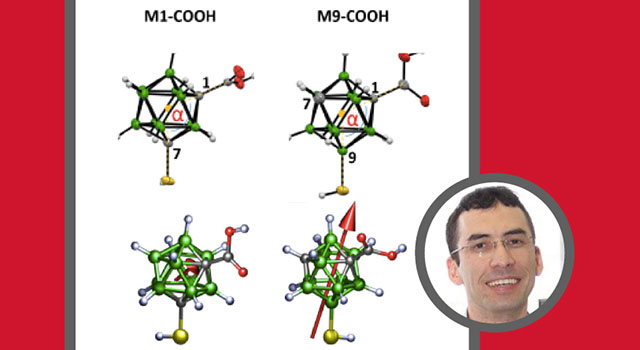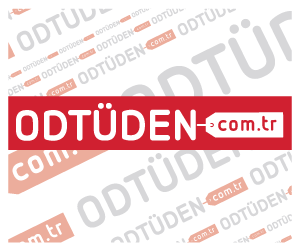
Assoc. Prof. Mehmet Fatih Danışman from the Department of Chemistry is granted TÜBİTAK 2537 – CAS (Czechia) Bilateral Cooperation Programme funding for his project titled “Dipole-Dipole Interactions in Self-Arranging Single Layers”.
The project carried out by Assoc. Prof. Danışman in collaboration with Dr. Tomas Base from the Czech Academy of Sciences Institute of Inorganic Chemistry (IIC) focuses on the dipole-dipole interactions among molecules trapped in their 2-dimensional assemblies exhibiting identical surface patterns but made of different isomeric building blocks. These weak interactions may have a substantial but mostly unrecognized effect on the overall stability of the self-assembled materials. To investigate such interactions, the project will exploit carborane cage molecules (carboranethiols) with two essential features, i.e., they exist in rich isomeric forms while keeping their geometry practically identical and exhibit low conformational freedom.
Several isomeric derivatives of carboranes have already been designed and prepared, and a novel one will be synthesized for this project. Their 2-dimensional arrays grown either from solution or in vacuum will be investigated using several complementary surface-sensitive techniques such as low energy atom diffraction (LEAD), X-ray photoelectron spectroscopy, atomic force microscopy, and temperature-programmed desorption. To this end, the Czech group, one of the few leading groups in the world in synthesizing carborane derivatives, will provide the carboranes. On the other hand, the Turkish side, which built and operates the only LEAD system in Turkey, will carry out the film growth and characterization tasks.
The results will not only improve fundamental understanding of dipole-dipole interactions in 2-dimensional assemblies but also enable better/improved design and realization of applications (such as organic electronic devices) that employ metal-organic interfaces.







